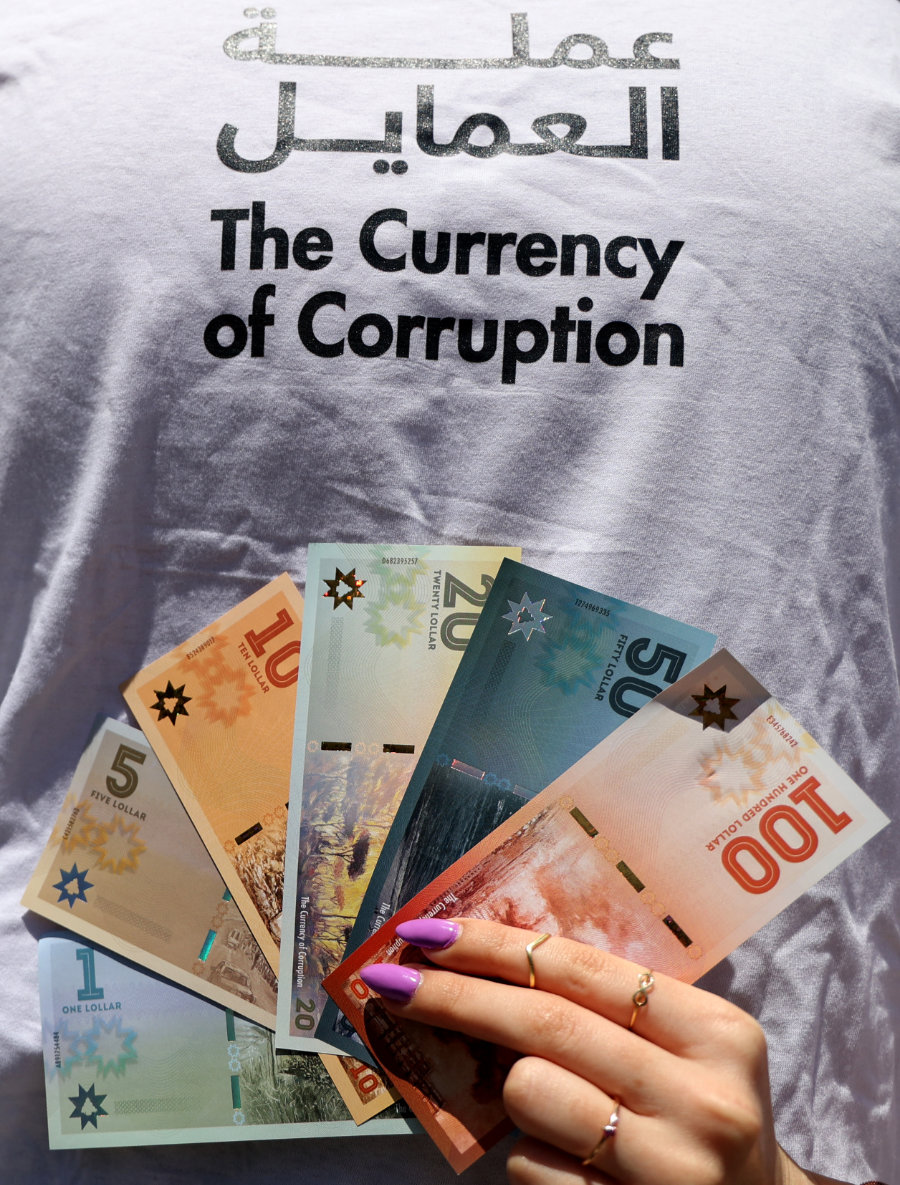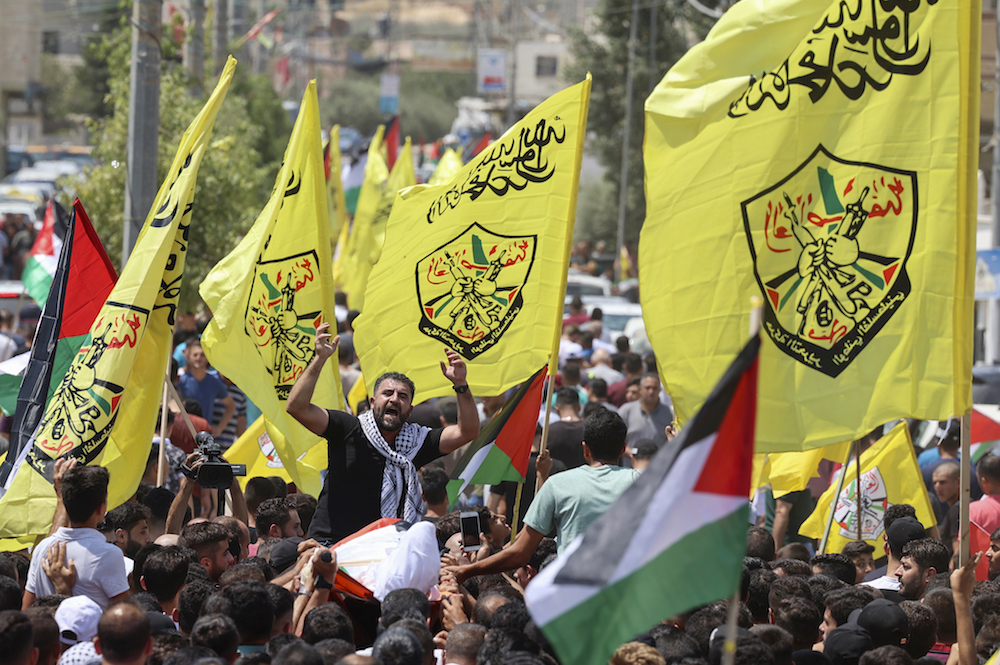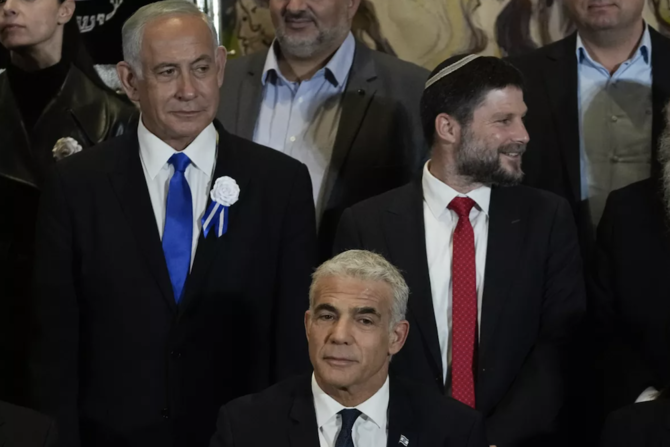
LONDON: A new Arab News/YouGov survey has identified a broad sense of despair among many Palestinians who feel trapped between an Israeli government they believe has no interest in forging peace and a Palestinian leadership they do not trust to successfully negotiate a deal with Israel.
The survey, titled “Prospects, Peace and Politics: Where do Palestinians stand?,” was published on the 75th anniversary of the Nakba.
Unsurprisingly, the survey finds that an overwhelming majority of Palestinians — 86 percent of the 693 who expressed a view — believe that the current Israeli government is not serious about signing a peace deal, a prospect about which only 14 percent remain optimistic.
Such skepticism has been fueled by the policies of the right-wing governments of Benjamin Netanyahu, who since 1996 has served 15 years as prime minister, over four separate terms in office.
After the formation in December 2022 of the latest Israeli coalition government, widely regarded as the most right-wing the country has seen, Netanyahu’s Likud party unnerved even its US allies by announcing plans to “advance and develop settlements in all parts of Israel — in the Galilee, the Negev Desert, the Golan Heights and Judea and Samaria (West Bank).”
Haaretz, the left-leaning Israeli newspaper, described the new government as “the most extreme right-wing, racist, homophobic and theocratic coalition in Israel’s history” — an impression Finance Minister Bezalel Smotrich did nothing to dispel with a speech in March in which he declared: “There is no such thing as a Palestinian nation. There is no Palestinian history.”
In January this year protests broke out across Israel against plans by the coalition to reform the judiciary, widely seen as a move designed to end judicial review of the government’s policies.
Such is the skepticism among Palestinians about the intentions of the Israelis that 66 percent still see no hope for peace even in the unlikely event of Benjamin Netanyahu’s right-wing regime being replaced by a left-wing government.
The last time the left had any real influence on Israeli politics was during the heyday of the Meretz party, which between 1992 and 1996 held 12 seats and was the third largest party in the Knesset. Meretz won no seats in Israel’s 2022 elections.
Regardless, the survey shows that there is little confidence among Palestinians in any Israeli government, whether right or left. Only 15 percent believe a right-wing government is likely to sign a peace deal, rising only slightly to 19 percent in the case of any future left-wing administration.
More surprisingly, perhaps, 63 percent of Palestinians feel unrepresented by either Hamas or Fatah, with the two factions attracting the confidence of only 11 percent and 19 percent respectively.

Palestinians carry the body of Shadi al-Shurafa who was killed by Israeli army fire on July 27 and his body was returned today, during a funeral procession in Beita village in the occupied West Bank, on August 10, 2021. (AFP/File Photo)
US-Palestinian journalist, author and media consultant Ramzy Baroud told Arab News that the results of its YouGov poll are “consistent with the reality on the ground. Indeed, this lack of leadership on the part of the Palestinian Authority, coupled with the factional divide, has pushed Palestinians to mobilize around different sets of values and a different kind of leadership.”
The slow formation of this new leadership, “emerging at a grassroots community level throughout occupied Palestine and among Palestinian prisoners in Israel,” was “completely bypassing the Palestinian Authority and also the factional nature of the various Palestinian political groups.”
This process, he believes, “will eventually lead to a degree of centralized leadership, which reflects the growing unity among Palestinians at a popular level.”
Meanwhile, he added, “despite the lack of truly representative leadership, the Palestinian people continue to communicate, time and again, that only an end to the Israeli occupation and the dismantlement of the apartheid regime can start the process of achieving true peace and justice in Palestine.”
Hamas, which was founded in 1987 after the first intifada, holds a majority in the Palestinian Legislative Council, the legislature of the Palestinian National Authority, but maintains a military wing and is designated a terrorist organization by the US and some other states, including the UK.
Fatah is currently the second-largest party in the Palestinian Legislative Council. Founded in 1959 by Yasser Arafat and others as the Palestinian National Liberation Movement, Fatah had a long history of terrorism but in the late 1980s renounced violence in favor of pursuing a diplomatic path toward a two-state solution.
The poll shows that only 25 percent of Palestinians believe the current Palestinian leadership is capable of successfully negotiating a peace deal with Israel. A whopping 75 percent do not.
“Palestinians lost trust in their leadership years ago,” Baroud said.
“This lack of trust is intrinsically linked to the endemic corruption of the PA but also to the total failure of the current Palestinian leadership to achieve a single meaningful political victory that could potentially renew the Palestinian people’s faith in the so-called peace process.”
In a frank interview with Al Arabiya in 2020, Prince Bandar bin Sultan, Saudi Arabia’s former ambassador to the US, spoke of his sadness at the failure of the Palestinian leadership to find the path to peace over many years. He was responding to the outright rejection by Palestinian leaders of the declaration of cooperation between the US, Israel, and the UAE, which was described by one Palestinian official as “a poisoned stab in the back of the Palestinian people and an attempt to try and get around international legitimacy.”
This, said Prince Bandar, “was truly painful to hear. This low level of discourse is not what we expect from officials who seek to gain global support for their cause, and their transgression against the Gulf states’ leadership with this reprehensible discourse is entirely unacceptable.”
It was, he added, “not surprising to see how quick these leaders are to use terms like ‘treason,’ ‘betrayal,’ and ‘back-stabbing,’ because these are their ways in dealing with each other.
“Efforts in the past years would have been better focused on the Palestinian cause, peace initiatives and protecting the rights of the Palestinian people to reach a point where this just, albeit robbed, cause can finally see the light — and when I say robbed, I mean both by Israel and Palestinian leaders equally.”
When asked for their views about why all previous peace talks and initiatives have failed, Israel’s continuing policy of intimidation, settlements and annexation emerges as the number one perceived cause, followed closely by US bias toward Israel.
This bias was especially evident during the presidency of Donald Trump. In November 2019 Secretary of State Mike Pompeo declared that the US no longer considered Israel settlements in the West Bank to be illegal, reversing a position held by the US since a 1978 legal ruling by the State Department.
However, in February this year Antony Blinken, the current US secretary of state, issued a statement condemning Israeli moves to accelerate its illegal settlement program. The US, he said, was “deeply troubled by Israel’s decision yesterday to advance reportedly nearly 10,000 settlement units and to begin a process to retroactively legalize nine outposts in the West Bank that were previously illegal under Israeli law.”
He added: “We strongly oppose such unilateral measures, which exacerbate tensions and undermine the prospects for a negotiated two-state solution.”
Despite the lack of confidence in Hamas and Fatah, those polled were less inclined to lay the blame for the failure of peace talks on the activities of Palestinian armed militias.




























